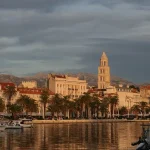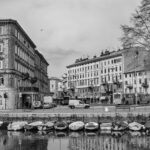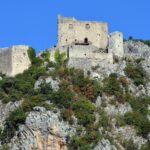From October 16 to 18, the 1st Joint Conference of the Fora of the Adriatic and Ionian Chambers of Commerce, Cities and Universities gathered more than 120 people and institutions from three civil society networks.
For the long-term development of the tourist offer, it is crucial to take into account all the environmental, social and cultural aspects of the economic activity. Therefore, in line with the guidelines of the EU Strategy for the Adriatic-Ionian Region, sustainable tourism was one of the roundtable topics that took place within the 1st Joint Conference of the Adriatic-Ionian Chambers of Commerce, Cities and Universities organized by the Adriatic-Ionian Chamber of Commerce and the Chamber of Commerce in Split, in cooperation with the City of Split, reports Dalmacija Danas on October 18, 2018.
From October 16 to 18, the conference gathered more than 120 bodies and institutions from three civil society networks of the Adriatic-Ionian region: the chambers of commerce, cities, and universities. Speaking about the creative and cultural industries in the EU context of cultural heritage and the tourist year of the EU – China, cultural heritage was highlighted as a way of solving the problem of seasonality, but also as part of the tourist offer that deserves special attention with regard to an increasing number of tourists and its preservation.
The aim of the roundtable was to exchange examples of the best practices and foster further cooperation between the Adriatic and Ionian countries in terms of sustainable tourism.
“All the regions are part of an international economy, and stakeholders cannot respond to challenges or exploit opportunities offered alone,” said Vice President of the European Network for Sustainable Tourism Development ‘Ecotrans’, Gordon Sillence, who presented the ‘green card’ for tourists at the conference to give travelers the ‘green offer’ of Europe.
“The focus is on two themes, a diverse tourist offer and a sustainable and responsible development of tourism. The biggest challenge for achieving these goals is funding,” said Branka Belošević from the Ministry of Tourism, a coordinator for the sustainable tourism of Croatia within the framework of the EU Strategy for the Adriatic-Ionian Region.
“Tourism can feel the consequences of pollution, but it can also cause pollution. The point is very simple – the use of resources must be less than the possibility of their renewal. So we need to measure to be able to manage,” said Hrvoje Carić of the Institute for Tourism
In 2001, the Ionian Chambers of Commerce opened and established the Croatian Chamber of Commerce of Split and the Chamber of Commerce of Ancona hoping to use their like minds and improve the economic development of the Adriatic-Ionian area.
Today, it is a network of 46 chambers of commerce from eight countries of the Adriatic-Ionian region (Albania, Bosnia and Herzegovina, Montenegro, Greece, Croatia, Italy, Slovenia and Serbia), representing about 1,800,000 companies in the Adriatic-Ionian area. Six county chambers HGK – Pula, Rijeka, Zadar, Šibenik, Split and Dubrovnik – are Croatian members of the Forum.








